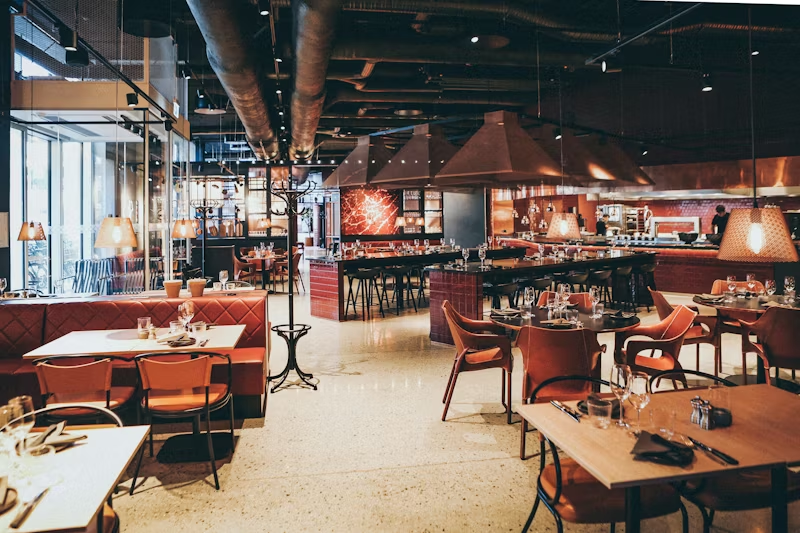A successful restaurant isn’t just about delicious food – it’s about creating a memorable experience for every guest while maximizing profitability. At the helm of this experience stands the general manager, the leader who orchestrates every aspect of the operation. This position is critical to a restaurant’s success. This is often one of the most difficult hires for restaurants to find so we have suggested that our clients use One Haus services to widen their applicant pool. We’re both specialists in the field so we know how critical it is to have a recruiter who deeply understands the industry. We turned to Mike Hewitt CEO of One Haus to pick his brain on what makes a great hire.
Guest Experience First
Great GMs understand that hospitality is the heart of the business. They possess exceptional interpersonal skills – diplomacy, empathy, and genuine warmth – to ensure the guest feels welcome and valued. They are the face of the restaurant, fostering a positive and inviting atmosphere for both diners and staff. A restaurant GM should be an exceptional teacher and mentor, with demonstrated experience fostering a strong dining room team through training and development programs. They believe in continuous learning and prioritize ongoing service and menu knowledge education for both them and their staff. Training and trying out your staff’s suggestions, making sure they have buy-in to what they’re selling through menu tastings to be good employees, and increasing revenue for the business are just some ways a manager can increase profitability. The smallest things can make a difference as a manager, like being hands on in the training process and giving honest, but constructive feedback.
Guest experience drives revenue. Hewitt says a good manager is proactive vs. reactive. A proactive GM always has a financial bird’s eye view of the restaurant, providing the tools to be prepared for situations rather than react after they happen. Proactive P&L management is urgent in identifying and remedying red flags – not waiting for instructions. Instead of only looking at financial reports once a month, a savvy GM is always aware of the status of the business.
This is a skill that can be taught by “setting realistic expectations for retention,” says Hewitt. When you provide a GM with extensive training, onboarding, SOPs, and mentorship, you set them up for success. A good workplace is fostered through guidance from above and support from below. Hewitt says “Make sure the job itself mirrors the description – any discrepancy builds a lack of trust. Our job is to give you options, your job is to keep them there.”
Master of Multitasking

The restaurant world is a whirlwind, and a great GM thrives in chaos. If the kitchen is in the weeds with tickets and the floor is short-staffed, a manager can jump in and help. Whether it’s assisting at the host stand with a long line, or running food during a rush, a master GM should not spend their entire shift in the office. Working collaboratively with their staff is a great way for a manager to show off their hospitality skills and contribute to a positive work environment. Don’t be one of those GMs who can never be found when needed.
They are masters of multitasking, seamlessly handling everything from repairs and maintenance to Department of Health regulations. Ordering, receiving, and time management are second nature, ensuring a smooth pre-shift setup with a well-prepared dining room and efficient administrative tasks completed before service begins. Communication is one of the most important skills for a GM. Fostering communication between FOH and BOH as well as dealing with customer needs is a crucial skill when acting in a management role in a restaurant. A GM should be the first one to arrive and the last to leave.
Financial Mastermind

But hospitality isn’t enough. A successful GM is also a financial expert, working with hospitality accountants like Paperchase to understand numbers, learning how to read P&L reports, managing money effectively, and implementing cost-control measures. Collaborating with their restaurant accountant helps a great GM become adept at inventory control and budgeting, ensuring efficiency and profitability. A manager with financial acumen has a keen eye for spotting areas
of waste in a restaurant. They can pinpoint if their servers are using too many napkins or if portions are inconsistent. A successful general manager also understands the need to judiciously utilize labor. By following targets provided by their hospitality accountant, they know when to schedule their staff, so the restaurant does not spend too much on labor. While the financial health of a restaurant may sound like an overwhelming thing to manage, a great GM does not need an advanced finance degree to get the job done. A willingness to learn and the ability to multi-task will help your restaurant go from mediocre to the hottest spot on the block in no time.
Often, a great GM is already in your business, but we shouldn’t expect that they come with the experience or tools to financially manage your business. As specialists in hospitality finance, Paperchase has seen the power of teaching restaurant GMs and ambitious staff about restaurant finance. It has a powerful impact on the restaurants they run and serves to upskill their workers. We’ve been offering completely complimentary educational seminars to share the knowledge we’ve gathered over decades in this industry. You can check out recordings of our restaurant finance seminars here, and sign up for the next session by reaching out to [email protected]
Conclusion
In essence, a great restaurant general manager is a multifaceted leader, a master of hospitality, finance, and operations. They wear many hats, but their goal remains constant: to create a thriving restaurant where guests want to keep coming back and staff is empowered to deliver exceptional service.
When using a recruiter like One Haus, you work with an agency that specializes in placing qualified management and executives in hospitality brands. Their recruiters have experience in these specific fields, allowing them to understand the unique challenges of each industry and find the best candidates for your business. They can also design staffing solutions tailored to your specific needs.
Read more























